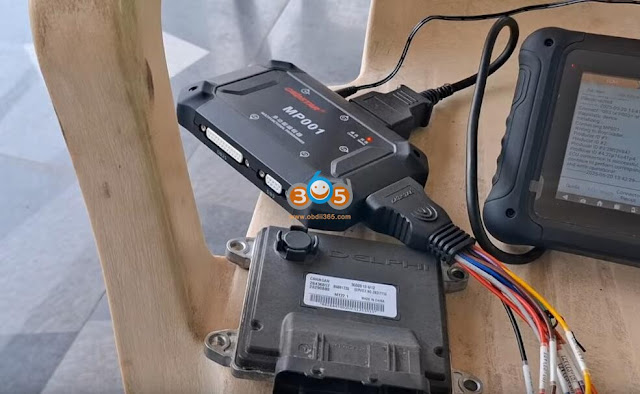OBDSTAR DC706 read and write BYD Delphi MT22.1 Denso ECU on bench successfully.
I’ll walk through my experience reading and cloning a Denso MT 22.1 ECU using the Obdstar DC706 tool. This process involves bench reading, VIN writing, and troubleshooting common issues—helpful for locksmiths, mechanics, and automotive enthusiasts.
Step-by-Step Process
1. Connecting to the ECU
The Denso MT 22.1 ECU was initially attempted with Xhorse Multi prog, but it required boot mode, which was unnecessary with the Obdstar DC706.
Using a K-line connection, the Obdstar successfully established communication with the ECU.
2. Reading the ECU Data
The reading process was slow due to the K-line protocol but stable.
The tool first writes a bootloader before extracting the flash data, ensuring compatibility.
A key advantage of the Obdstar DC706 is its ability to read and write VINs, useful for virgin ECUs or replacements.
3. Handling a Virgin (New) ECU
The new ECU had no pre-written VIN, so the plan was:
Read and save the flash data for future use.
Write the correct VIN if the original ECU couldn’t be read.
Avoiding physical opening (desoldering) was preferred to preserve the ECU’s integrity.
4. Troubleshooting and Next Steps
If the original ECU couldn’t be read via bench mode, boot mode (desoldering) would be the fallback.
The saved flash data from the new ECU could be reused for future cloning jobs.
Key Observations
Obdstar DC706 Benefits:
Works without opening the ECU (bench mode).
Allows VIN writing, essential for new or replacement ECUs.
More user-friendly than Multiprog for this application.
Challenges:
Slow reading speed due to K-line communication.
Boot mode may still be needed for problematic ECUs.










No comments:
Post a Comment
Note: Only a member of this blog may post a comment.